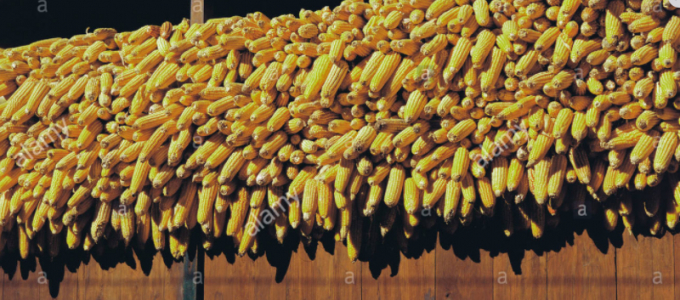November 26, 2025 | 18:20 GMT +7
November 26, 2025 | 18:20 GMT +7
Hotline: 0913.378.918
November 26, 2025 | 18:20 GMT +7
Hotline: 0913.378.918

The volatility that has in engulfed the commodity world the last 18 months due to various factors such as COVID-19, energy wars, and adverse world weather has been unprecedented.
The grain markets are no exception, in particular the last 60 days, in which the market lives and dies on the next weather forecast, crop conditions and export announcements. As supplies have tightened over the last couple of years, it becomes easier and easier to create a ledger balance of both positive and negative factors that can affect price, some in a very meaningful way.
As the July 4 weekend approaches, traditionally a turning point for corn and soybean prices, one can only wonder if the high for the year is in place, or if the bull market is just starting.
From a historical perspective, crop production has been rather predictable and reliable. With this comes periods of low prices, in which demand tends to develop and then grow. After a low-price trough, in the past seven years compared to the previous seven, both the corn and soybean markets grew a strong demand base.
From an end user's perspective, the just-in-time inventory management practice of purchasing as needed (because supplies are plentiful) was a paramount practice after 2014.
Price rallies were far and few between. When they did occur, they were short-lived. Fast forward to 2021, and supply disruptions tightened U.S. inventory, due to a late planted crop in 2019 and a dry weather pattern during August of 2021.
Meanwhile, Argentina and Brazil have recently struggled with adverse weather. Strong world demand, particularly in China, was added to the mix, and suddenly, prices have a very strong upward trend in late 2020 and the first half of 2021.
The soybean market saw July futures peaking at $16.67-1/2 in mid-May. The June Supply and Demand report indicated that higher prices appeared to be slowing demand through rationing supply, as projected carryout for the 2020/2021 and 2021/2022 crop years were increased, albeit a small amount. This report sent a signal to the market, and prices dropped over $3.00 a bushel. Corn dropped well over $1.00 per bushel as well.
The Stocks and Acreage reports this week revived fledging markets.
The question now: Was the recent price downturn a setback and buy opportunity for end users? It appears so.
Recent weather conditions in Brazil have been less than ideal, as a frost may have damaged some of the second crop.
Hot and dry conditions in the northwestern regions of the Midwest suggest that reaching trendline yield in either corn or soybeans may be a challenge.
It looks like the bull market is alive and well, predicated on strong demand and tightening inventory.
Only time will tell if prices are destined to move higher and reach toward record levels, or if they are bouncing on supportive news, only to exhaust themselves as demand likely deteriorates. The feel of it suggests new high prices are in store, as many suggest there is now, after the most recent reports, no room for error on this year’s production. Yet, all bull markets reach a point where demand stops chasing them and lower prices are in store. That brings to question: Where is that point?
(SF)

(VAN) A new study reveals how the simultaneous effects of ocean acidification, salinity and loss of oxygen are making the world more fragile.

(VAN) Hopes are growing that the creation of the first 3D turkey gut model could be a turning point in the battle against the virulent blackhead disease.

(VAN) Tyson, America’s biggest meat supplier, plans to shutter one of its largest beef processing plants as the industry continues to struggle with low cattle supplies and political pressure from Washington.

(VAN) New FAO study shows how digital solutions are empowering farmers and fishers to prevent losses and build resilient agrifood systems.

(VAN) Brazil's COP30 presidency pushed through a compromise climate deal on Saturday that would boost finance for poor nations coping with global warming but that omitted any mention of the fossil fuels driving it.

(VAN) Poultry farmers in the UK have been warned that they could face one of the worst winters yet for bird flu.

(VAN) Prices of main-crop paddy have risen sharply, with jasmine rice hitting 16,100 baht per tonne — the highest level in years.